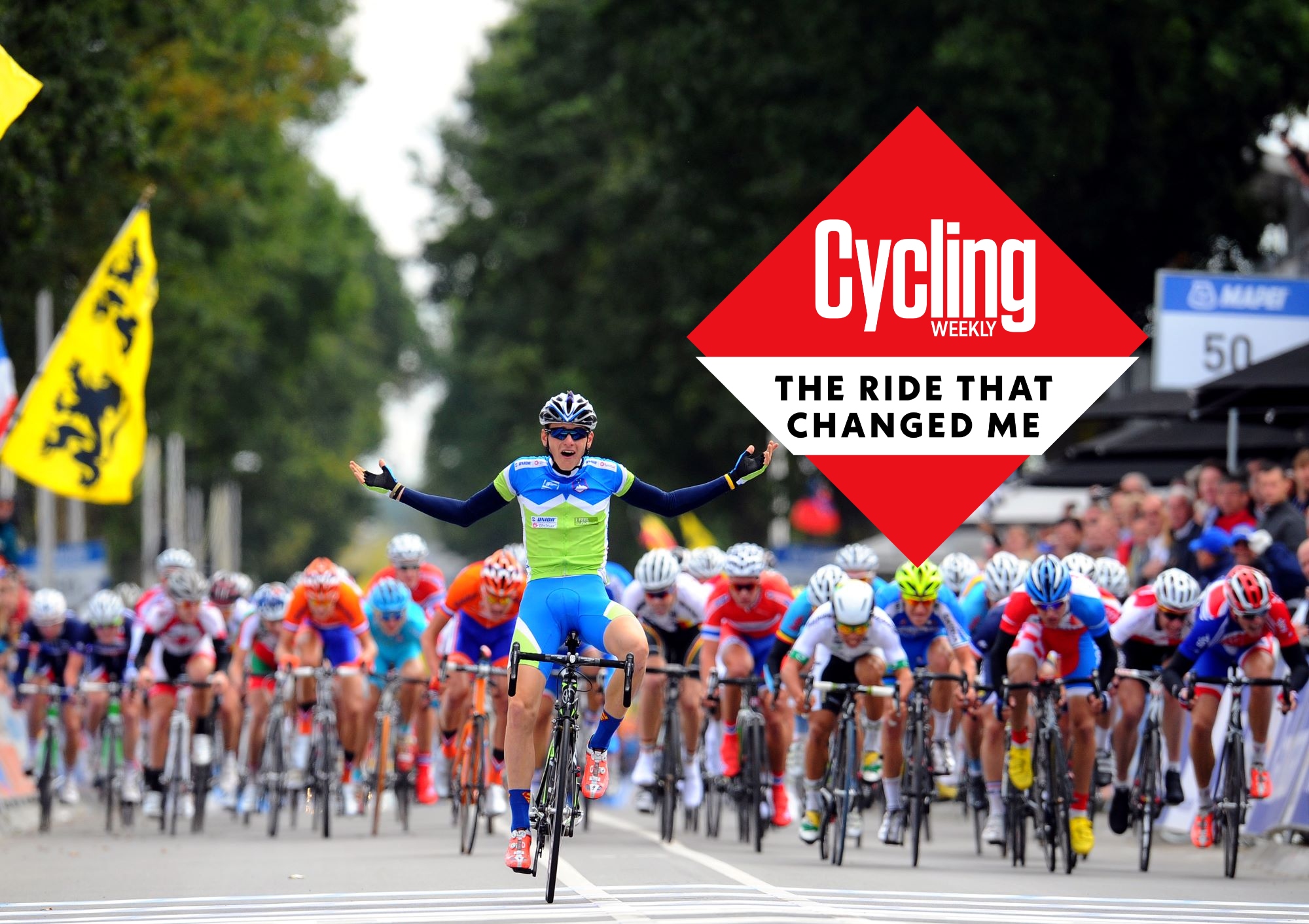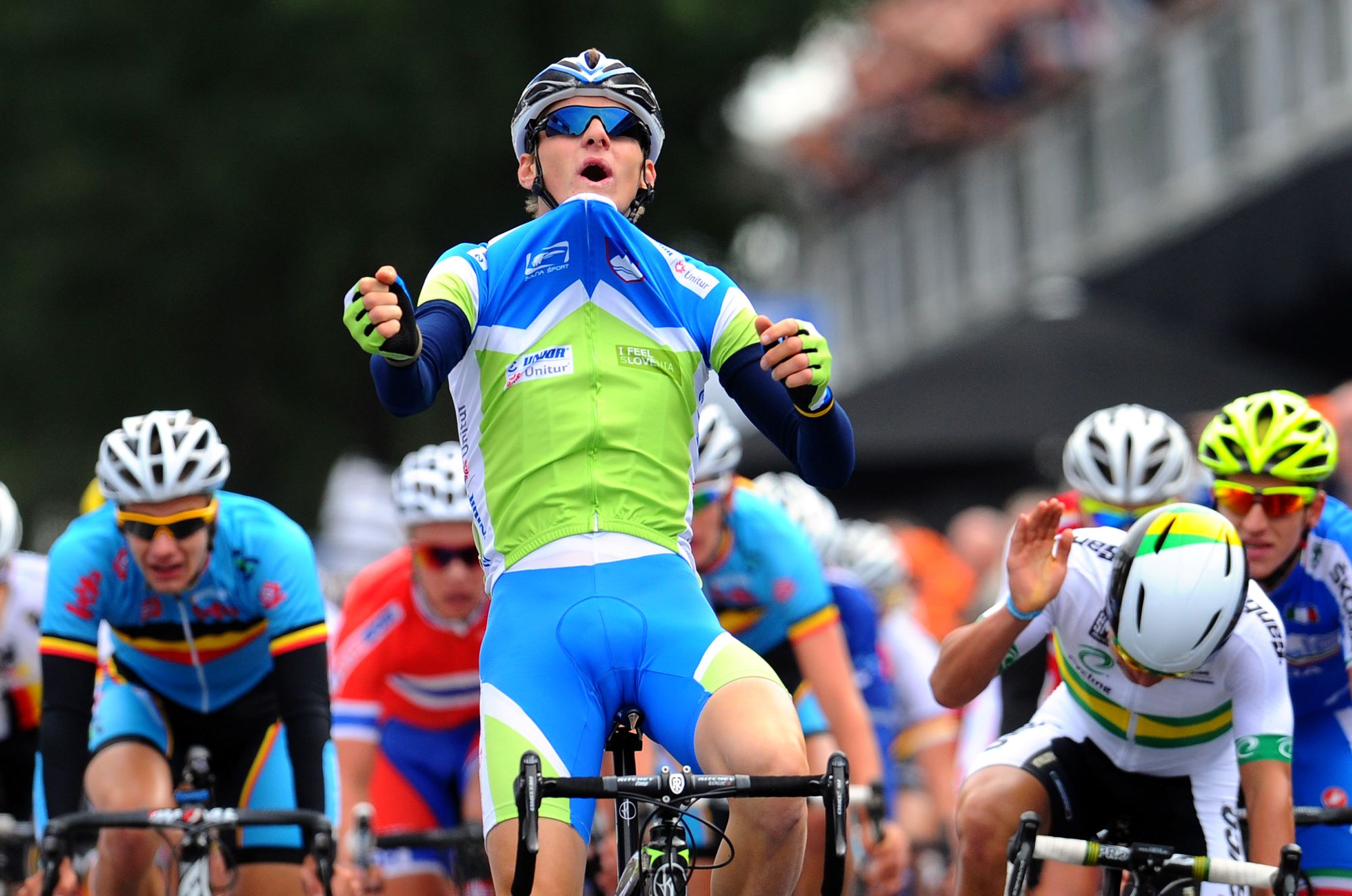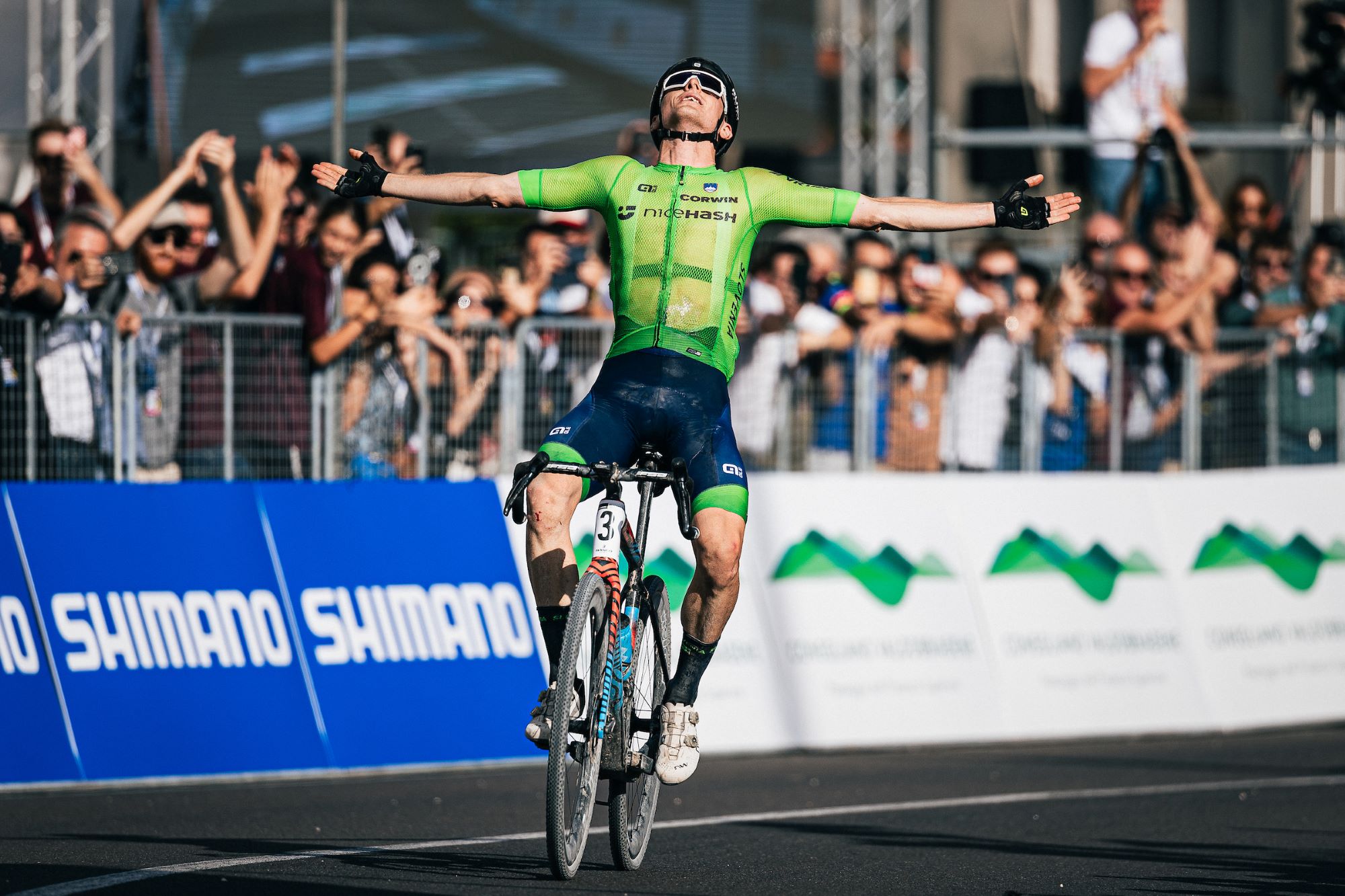
This article is part of Cycling Weekly's 'the ride that changed me' series. Our writers hear from a range of professional and ex-professional cyclists about that one day on the bike that changed the trajectory of their career for good.
From an outside perspective, it would be seemingly impossible to highlight a turning point in the career of Matej Mohorič. The Slovenian is now considered as one of the greatest talents in the men’s WorldTour, and there are simply too many pivotal rides to choose from.
A rider of daring ingenuity, Mohorič is a rider capable of winning from a variety of different situations - be it with powerful, solo efforts from a breakaway at the Tour de France or in a high octane Monument finish from a group containing some of the best riders in the world, as he proved when he slalomed down the Poggio - with the aid of a now infamous dropper seat post - to win Milan-San Remo in 2022.
As well as San Remo, the Slovenian rider on the Bahrain Victorious team can count stage wins in all three Grand Tours within his rapidly growing pile of accolades.
For Mohorič, however, it's easy to highlight amongst it all one ride that particularly changed him.
“It was probably the Junior World Championships in 2012,” he tells Cycling Weekly. “Because this was the day that I realised I'm quite good at racing, I think.”
“I realised at that point that cycling could become my job, my profession,” he adds. “And then winning the World title as a junior was a big change not only for my career but for my life in general.”
Lining up in Limburg, Mohorič remembers that he was buoyed by the fact that he’d already proven that the form was there that summer, he now just needed to deliver.
“I was physically feeling really good at that point in the year,” he says. “I had won most of the races that I participated in going into September, and then I knew that I had a good chance of doing well.
“Caleb Ewan was the big favourite to win the road race for Australia. They controlled the race all day and tried to bring everything together for a sprint, which he did win for second place, but I managed to sneak away at the top of the Cauberg and it changed everything.”

“I just remember vividly how focused I was,” he adds. “I was switched on the whole race, fighting for position. I was then able to take advantage of that fight and save quite a bit of energy compared to some of the other competitors and was very efficient, always starting the climbs on the front and finishing in the middle of the pack. Then yeah, I was still feeling pretty good on the last lap of the course.”
As we saw several years later on the Poggio, Mohorič knows that timing is everything in cycling and that was something that became ingrained in him after launching his race winning move in 2012.
“On the last lap, I knew the most important corner to take going into the Cauberg and fortunately I was the first rider to enter it,” he explains. “And then at that point, I just knew what I had to do. I didn't follow the first move from the bottom of the climb, I waited patiently to go all the way to the top and attack from the 15th wheel or so.
“Luckily it was then enough to make a difference and I could hold on all the way to the finish. It was then that I really realised that I do want to be a professional cyclist.”
'Everyone has a different story'

Fortunately for Mohorič, he was able to live up to his potential in the years that followed once he turned professional. However, he wisely points out that in the highly pressured and competitive junior environment, early success isn’t the be all and end all for any aspiring professional cyclist.
“I think everyone has a different story,” he says. “There are some riders that are very successful at a young age and not so successful when they turn professional or later on.
“Then there are some riders that didn't even do the sport when they were young, like Primož Roglič, he found his own way in coming in from ski jumping, which of course has nothing to do with endurance sport.
“So there's really no rule,” he adds. “I think each of us writes their own story. It does shape you a little though if you are successful at a young age because the expectations are probably higher and the pressure is greater.
"But it could be either a good or a bad thing, it doesn't really matter, there's no rule that you need to follow in your career."
Join us for the next instalment of 'the ride that changed me' in a fortnight's time.







